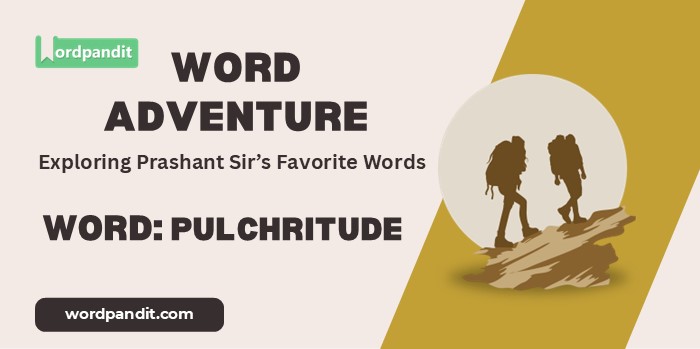Word Adventure: Pulchritude
The Headline
“Beauty in Disguise: The Surprising Sound of ‘Pulchritude'”
The Scoop
In the gallery of words describing beauty, some terms stand out for unexpected reasons. ‘Pulchritude’ is one such fascinating example – a word that means “beauty” while sounding decidedly unbeautiful to many ears. Let’s explore this intriguing term that reminds us not to judge a word by its sound.
Let’s Break It Down
The Plot Thickens
The journey of ‘pulchritude’ through linguistic history is as fascinating as its sound-meaning contradiction. The word entered English in the 15th century from Latin, where ‘pulcher’ was the standard word for “beautiful” – as common as our modern “beautiful” is today.
Unlike many words for beauty that sound melodious (like “elegant” or “graceful”), pulchritude has a chunky, almost awkward sound to modern English speakers. This contrast has made it a favorite among writers who appreciate its slight irony or who wish to elevate their descriptions to a more formal register.
Today, the word is often used with a touch of humor or literary flair, its formal nature making it perfect for adding sophistication – or sometimes playful pomposity – to descriptions of beauty.
Word in the Wild
The Twist
Here’s a thought-provoking aspect of ‘pulchritude’: while we might find its sound ungainly in English, to ancient Roman ears, ‘pulcher’ and its derivatives probably sounded as naturally beautiful as our word “beautiful” does to us. This reminds us that our perception of linguistic beauty is culturally conditioned – what sounds awkward in one language or era might be music to other ears!
Make It Stick
Pulchritude: When beauty puts on its fanciest vocabulary pants!
Your Turn
Think about words that sound different from what they mean – perhaps beautiful words describing ugly things, or harsh-sounding words describing gentle concepts. What makes these contrasts interesting? Share your favorite examples in the comments below. Let’s explore how sound and meaning dance together (or sometimes step on each other’s toes) in language!
Down the Rabbit Hole
- Curious about sound symbolism? Explore the study of phonaesthetics and why some words sound “beautiful” to us.
- Interested in beauty in different cultures? Research how various languages express concepts of beauty.
- Want to discover more formal alternatives to common words? Look into elevated diction and literary vocabulary.
The Last Word
As we conclude our exploration of ‘pulchritude’, I hope you’ve gained appreciation for this wonderfully contradictory word that proves beauty can come in unexpected packages. It reminds us that in language, as in life, appearances (or sounds) can be deceiving. The next time you want to elevate your description of beauty to formal heights, remember – you’re not just seeing beauty, you’re witnessing pulchritude! Until our next word adventure, this is Prashant from Wordpandit, encouraging you to find beauty in unexpected places, even in seemingly ungainly words!












